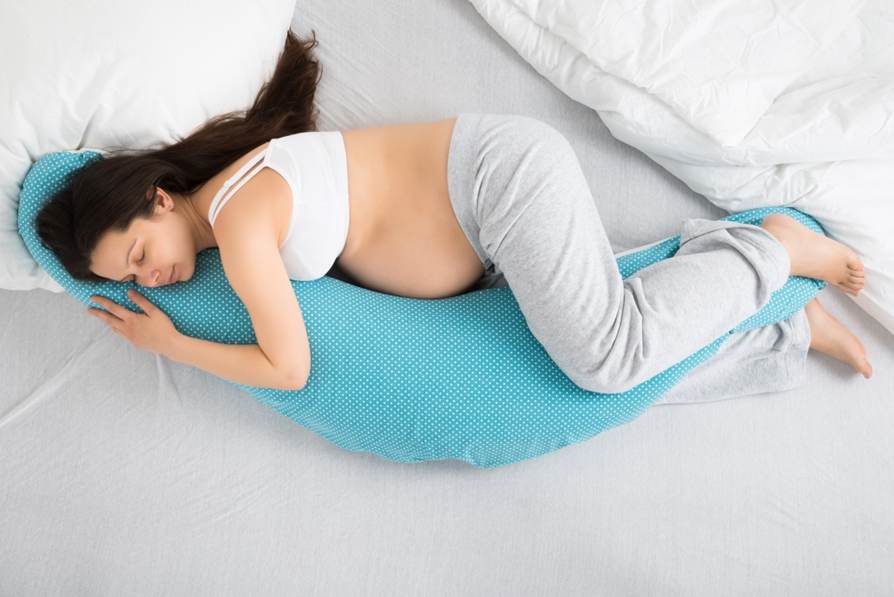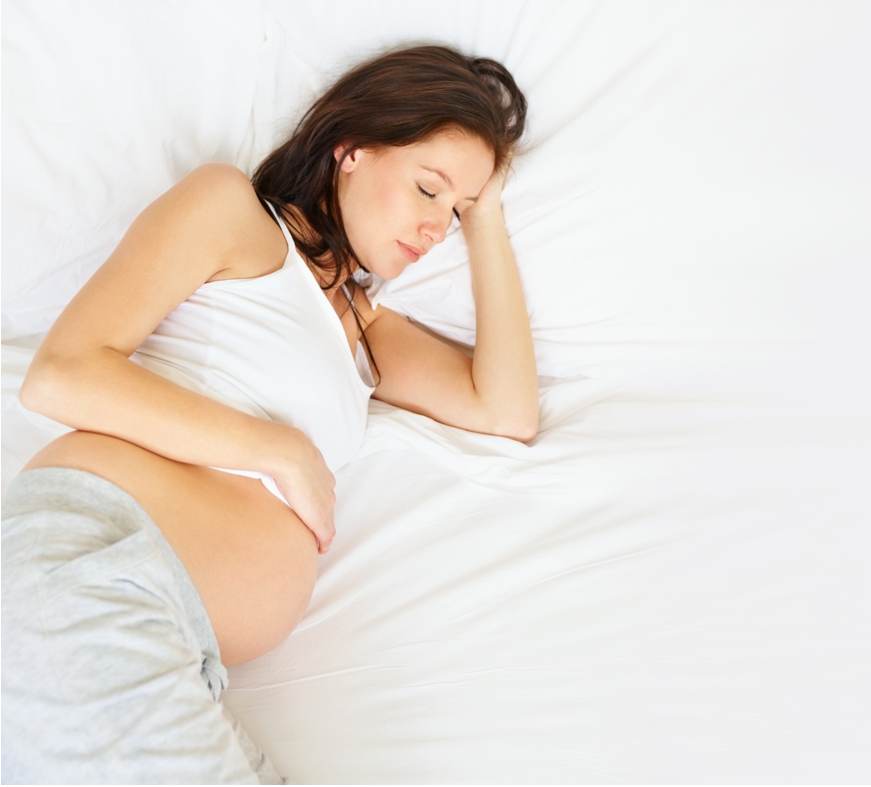According to the National Sleep Foundation, 78% of women reported disturbed sleep while pregnant. Twenty-six percent reported symptoms of restless leg syndrome (RLS) and 30-50% experienced gastroesophageal reflux disease (GERD). Pregnancy just got a less pretty.
Growing a human being inside you is no easy task; in fact, it’s exhausting. Now more than ever, you need a good night’s sleep for the sake of your and your baby’s health.
While there is no way to completely avoid sleep disturbances, there are ways to optimize your sleep environment and sleeping structure to get the quality sleep you so desperately need during the next nine months.
1. Block out the light
Before the creation of alarm clocks, the light was responsible for communicating with our bodies that it’s time to get up. If you are having trouble sleeping, make your room as dark as possible to avoid triggering your brain into thinking it should be awake.
That means blocking out both natural and artificial light. To block natural light, try using blackout curtains to keep light from streaming in at the crack of dawn. To minimize artificial light, turn your alarm clock away from your bed and avoid using the TV to help you fall asleep.
2. Clear out the clutter
A cluttered room achieves the exact opposite of creating a haven for peaceful sleep. According to a study by UCLA researchers, physical clutter overloads your senses, which leads to stress. Stress that results from a messy room is the last thing you need impacting your sleep. Why lose sleep over something you can easily manage? Not to mention, the last thing you want is to trip making one of your many middle-of-the-night bathroom trips.
3. Speaking of the bathroom… leave a light on
It’s no secret you have to pee A LOT when you are pregnant. You are probably used to getting up multiple times a night to make a trip to the bathroom. Instead of risking a fall while navigating through the pitch black abyss known as your room, consider adding a low-blue night light to the bathroom. These night lights emit 90% less blue light than normal light bulbs.

Source: iStock photo by thoth11
The wrong solution? Skipping the water. It’s very important to stay hydrated while pregnant. Make sure you are drinking plenty, but feel free to limit your intake after 7 p.m.
4. Optimize your sleeping structure
It’s already hard enough to get comfortable when you’re pregnant, you don’t need your mattress making you uncomfortable too. Your mattress is the tool used to achieve your best sleep possible—it will directly impact your sleep quality. Make sure your bed is in the right shape to support you and your baby. If you are experiencing pain when you get out of bed in the morning or you notice a sag towards the center, it might be time for an upgrade.

Source: iStock photo by AndreyPopov
Not only what you sleep on, but how you sleep will impact your comfort level. Sleeping on your side – particularly your left side – is the recommended sleeping position for women who are pregnant.
And don’t forget to carefully consider your pillow choice, too. A good rule of thumb when selecting a pillow for side sleeping is to look for one that is thicker or higher under the neck than the head in order to keep your spine aligned.

Source: iStock photo by GlobalStock
5. Keep it cool
If there is one word to sum up the reality of pregnancy, it would be uncomfortable. As your body changes, you are more prone to get hot which can make it hard to sleep.
Did you know, the temperature has the largest impact on sleep quality? That’s because to fall asleep our core body temperature must decrease. According to Dr. Robert Oexman of the Sleep to Live Institute, the ideal temperature for sleep is 65 – 68 degrees.
“If that’s too cold for you, just pile on more blankets. As long as your head is exposed to that cold air, you will decrease your core body temp,” Dr. Oexman shares.
6. Splurge on an essential oil diffuser
Lavender is known for its calming effects. Research shows that the aroma of lavender eases anxious thoughts and insomnia. Psychologists at Wesleyan University even found this essential oil increased the amount of the very deep, slow-wave sleep (where your heartbeat slows and muscles relax) in respondents who were exposed to it for less than 10 minutes.
Maybe it’s time you splurged on the $30 essential oil diffuser you have always wanted! It’s not for you, but the baby (wink, wink).
7. Minimize noise
You may not be able to do anything about external noise if you live near a busy highway or airport, but you do have control over your internal environment. Try your best to fall asleep without the TV on or keep your head away from a shared wall, especially if you share a wall with your kiddos or the laundry room.
If you have done all you can do to minimize noise and you still can’t fall asleep, try using earplugs or a white noise machine to mask the louder noise. Dr. Oexman recommends a constant hum, no music or crashing waves.
This is arguably the most critical time in your life to be healthy—after all, the life inside of you depends on it! Sleep affects every aspect of your overall health, make sure to protect it during this life stage.

